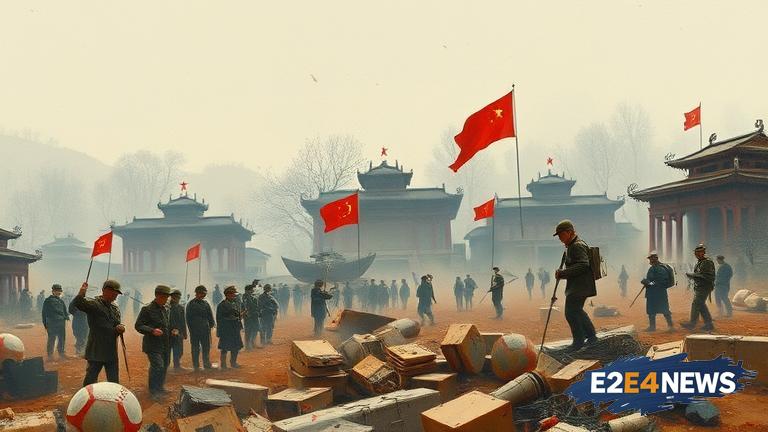China is marking a significant milestone, 80 years since the end of World War II, a conflict that had a profound impact on the nation and its people. The country played a crucial role in the Allied victory, with millions of Chinese soldiers and civilians contributing to the war effort. As the world reflects on the lessons of history, China is working to preserve the memories of its WWII experiences, ensuring that the sacrifices and bravery of its people are not forgotten. The Chinese government has launched various initiatives to promote historical awareness and education, including the establishment of museums, memorials, and cultural events. These efforts aim to raise awareness about China’s significant contributions to the Allied victory and the immense human cost of the war. The conflict resulted in the loss of millions of Chinese lives, with estimates suggesting that between 15 and 20 million people died during the war. China’s experiences during WWII have had a lasting impact on the nation, shaping its foreign policy, international relations, and national identity. The country’s role in the war has also been recognized by the international community, with the United Nations acknowledging China’s contributions to the Allied victory. As China continues to grow and develop, it is essential that the nation remembers its past, honoring the sacrifices of its people and learning from the lessons of history. The preservation of historical memories is crucial, not only for China but also for the world, as it provides valuable insights into the causes and consequences of conflict. By reflecting on its WWII experiences, China can gain a deeper understanding of its place in the world and its responsibilities as a global leader. The nation’s historical memories also serve as a reminder of the importance of international cooperation and diplomacy in preventing future conflicts. China’s experiences during WWII have also had a profound impact on its relations with other nations, particularly Japan, with which it has a complex and often contentious relationship. The two nations have struggled to come to terms with their shared history, with disputes over issues such as war reparations and historical revisionism. Despite these challenges, China and Japan have made efforts to improve their relations, with both nations recognizing the importance of cooperation and dialogue in promoting regional stability. As China looks to the future, it is essential that the nation continues to engage with its past, learning from the lessons of history and working to promote greater understanding and cooperation with other nations. The preservation of historical memories is a critical component of this process, ensuring that the sacrifices and bravery of China’s people are not forgotten. By honoring its WWII experiences, China can promote a deeper understanding of its national identity and its place in the world, while also contributing to a more peaceful and stable international community. The Chinese government has also taken steps to promote people-to-people diplomacy, encouraging exchanges between Chinese and international scholars, historians, and educators. These efforts aim to promote greater understanding and cooperation, while also providing opportunities for China to share its historical experiences with the world. As the world continues to evolve and change, it is essential that nations like China prioritize the preservation of historical memories, ensuring that the lessons of the past are not forgotten. By reflecting on its WWII experiences, China can gain valuable insights into the causes and consequences of conflict, while also promoting greater understanding and cooperation with other nations. The nation’s historical memories serve as a reminder of the importance of international cooperation and diplomacy in preventing future conflicts, while also highlighting the need for ongoing efforts to promote peace, stability, and development. China’s experiences during WWII have also had a profound impact on its economic development, with the nation’s wartime experiences shaping its post-war economic policies. The country’s emphasis on self-reliance and economic development has been influenced by its WWII experiences, with China recognizing the importance of building a strong and independent economy. As China continues to grow and develop, it is essential that the nation prioritizes the preservation of historical memories, ensuring that the sacrifices and bravery of its people are not forgotten. The nation’s historical memories serve as a reminder of the importance of international cooperation and diplomacy in promoting regional stability, while also highlighting the need for ongoing efforts to promote peace, stability, and development.
